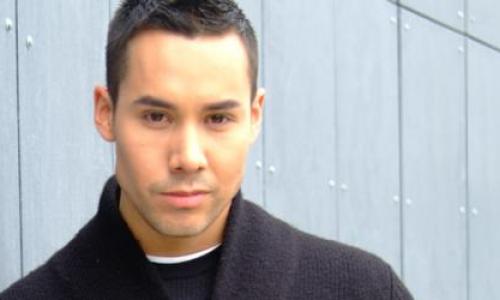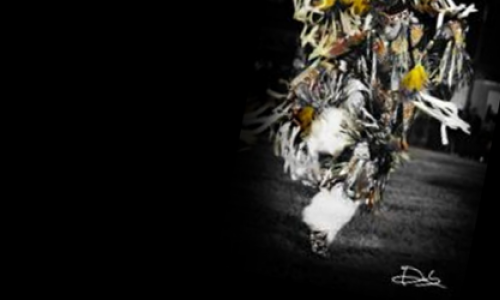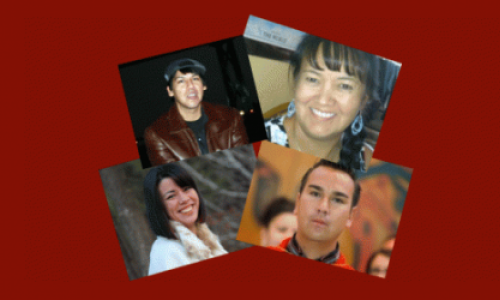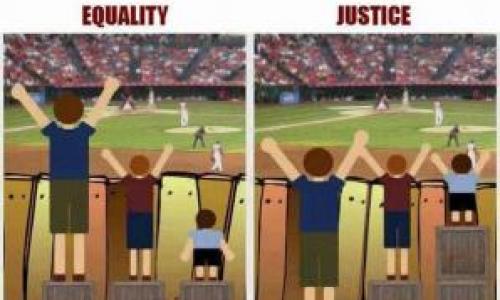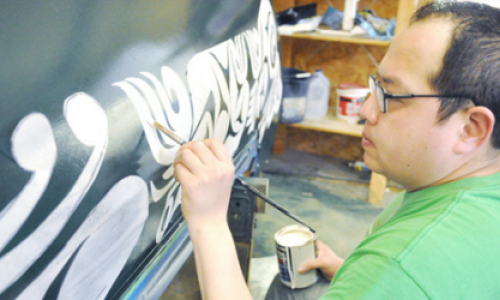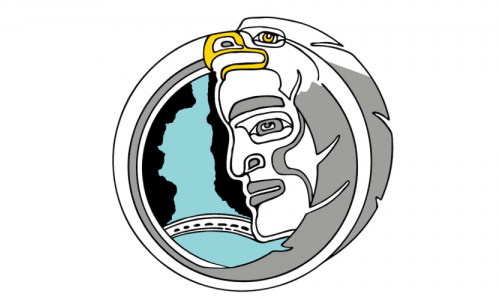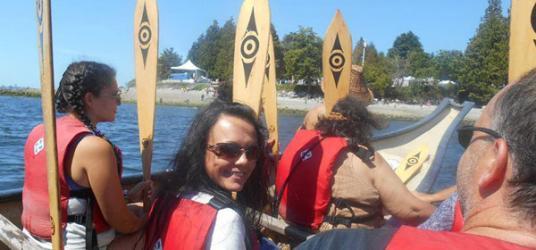
Effects
As a culture of negotiation, the TWN is a progressive and innovative nation. Their mandates of collaboration, partnership and compromise are evident throughout their negotiating history. They acknowledge that they live in the modern world and know their choices and decisions now will effect the generations to come. Because of this they have developed partnerships for mutual benefit. They build partnerships that will reflect their culture and traditions. They work toward economic and community development in such a way that benefits the community and enables them to work toward self-sustainability. In the cases of several of their partnerships, such as Endurance Wind Power, they prove that they are ahead of the game in some respects because they seek alternatives to fossil fuel, which honours their values, yet their partnerships produce economic advantages for the nation. Their band office, general store and various other portables used for education and the like, are each run on self-sustaining, green energy.This demonstrates their ability to embrace modern progression and technological advancement while still holding true to their sacred obligations. This, in and of itself, is an act of decolonization for the entire nation.
The effects of the KM conflict and its position within TWN culture of negotiation are many. Firstly, TWN isn’t interested in negotiating with KM or the federal government. Their answer is ‘no’. However, their negotiations will take place in court with the NEB, as well as in regards to the federal government’s failure to consult. These are the negotiations that are taking place in plain site. However, kinetics involved in this undertaking reflect a significant amount of time, once again, building partnerships with various other actors whose interests are similar to the TWN’s. These are the negotiations that will have a lasting effect on TWN’s relationship with both, native and non-native communities at large, and it is this process that has lasting implications for the future of TWN’s positioning within the mainstream of society.
Implications
The implications of these events for the future of the TWN specifically are perhaps the most significant aspect of their work. By leading the way in the opposition to the KM expansion, they’ve garnered respect from average citizens, which hasn’t always come easy for First Nation people due to ignorance, the media and a combination of multiple institutional factors. For TWN, they have stepped into a role that has many people from a variety of demographics looking to them for direction and guidance. After this conflict has been resolved in whichever direction it may go, the lasting impressions of TWN as a fierce, responsible and knowledgeable community of people, willing to go the distance for the best interests of all people, native and non-native alike, have the potential to shift the discourse surrounding First Nations people. Carleen Thomas expressed the interests of all Canadians and British Columbians specifically:
“But as we got further into it, it became really, not only was it an environmental issue, but it became a real challenge to our rights and title, in how this government, Harper’s government was treating, not just the Tsleil-Waututh people but all First Nations along this pipeline and all First Nations along the pipeline of the Northern Gateway. It was, as Chief Maureen said in our launch of our legal challenge, they are just riding roughshod over our rights and title. So, it added that dimension for me. And now its actually riding roughshod over the democratic rights of Canadian people, because they have changed the environmental assessment act, they changed the navigable waters act, they changed the fisheries act, and they all did that under what they call omnibus bills 38 and 45, I believe…So, its no longer that Canada or this federal government is riding roughshod on Indigenous rights, now its the rights of all Canadians. Because we all need clean water, we all need land, we all need clean air, so to me, on a real personal level, that’s the level that really gets me motivated in doing something, because its not just for us as First Nations anymore, its for Canadians and in particular its for British Columbians…”
Because the TWN have proven themselves to have the knowledge, resources and commitment to lead this fight, and because their interests lie with the health and well-being of all people, their public image has shifted in such a way that has earned them widespread support. The credibility gained by the TWN within this conflict could result in the dawning of a new relationship between First Nation communities and non-native British Columbians that results in mutual respect, understanding and healing. This is the greatest gift of the Sacred Trust Initiative.
I will conclude this case study on a personal note. This journey of discovery is not complete. The Sacred Trust Initiative has a long road ahead of them. The road will be fraught with difficulties, challenges, successes, and sacrifice, but it is one that the TWN and the members of the Sacred Trust feel compelled to travel as their sacred obligation. My brief look into the many layers of the Tsleil-Waututh Nation as innovators, collaborators and protectors has sparked a fire to know more, do more and be more for the benefit of all First Nation people of Turtle Island. That is my sacred obligation and I will continue my work with the Sacred Trust in any way I am able.
Being a part of a community with such a rich history of survival and resilience is as close to magic as one could ever hope to find themselves. It is their relationship with the land, air and waters; it is their relationship with the creatures that run, the creatures that soar and the creatures that swim; it is the relationship between the people and their community; it is the relationship the people have with themselves and especially their relationship with Creator. It is all interwoven and one cannot exist without the other. This is their sacred obligation to protect for us all.
I will finish with the words of Chief Dan George, who has captured the very feeling in my heart as I write these final words.
The beauty of the trees,
the softness of the air,
the fragrance of the grass,
speaks to me.
The summit of the mountain,
the thunder of the sky,
the rhythm of the sea,
speaks to me.
The strength of the fire,
the taste of salmon,
the trail of the sun,
and the life that never goes away,
they speak to me.
And my heart soars."











